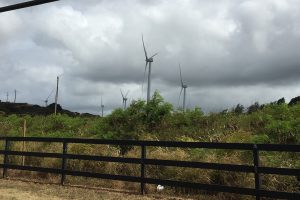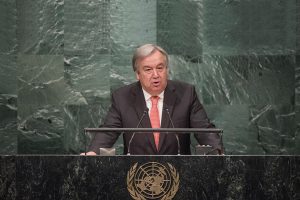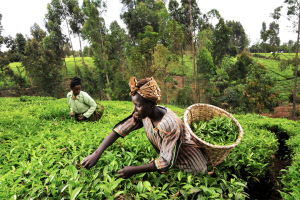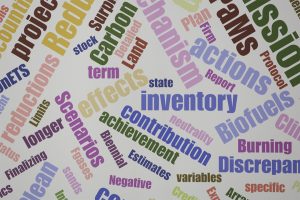6 September 2019: The Asia-Pacific region can lead the global transformation towards a climate-resilient world. This was the key message emanating from the 2019 edition of Asia-Pacific Climate Week (APCW), which emphasized the economic benefits of climate action and sustainability.
APCW 2019, which convened from 2-6 September in Bangkok, Thailand, transmitted recommendations and key messages to the UN Secretary-General’s Climate Action Summit on 23 September on five of the Summit’s nine tracks: energy and industry transition; infrastructure; cities and local action; resilience and adaptation; and nature-based solutions.
APCW also sought to build momentum towards:
- long-term holistic planning to enable countries to tap into the region’s renewable energy potential;
- a fundamental shift in mindset and systemic change in order to achieve long-term resilience;
- mainstreaming nature-based solutions to integrate policies and frameworks and corporate sustainability strategies, and attract investment; and
- mobilizing political will for industry transition to accelerate change to ensure policies that regulate and incentivize climate-friendly operations and products, including a circular economy. [Key Messages for the UN Climate Action Summit]
The Week included an NDC Dialogue, a Climate Technology Centre and Network (CTCN) Regional Forum for Asia, a training workshop on accreditation to the Adaptation Fund and a Marrakech Partnership meeting. Other sessions addressed, inter alia: raising ambition in Nationally Determined Contribution (NDC) implementation; carbon pricing; adaptation planning and finance, with a focus on communities and ecosystems that need it most; climate finance; capacity building; and the enhanced transparency framework under the Paris Agreement on climate change.
During a session on achieving low-emission growth in cities through sustainable urban systems management, Thailand responded to concerns regarding the sustainable management of natural resources, the livability of cities and an increasing reliance on imported fossil fuels to meet its energy needs, by identifying the waste sector as one of the main priorities in its latest Technology Needs Assessment (TNA), with mitigation options in waste management and conversion of waste to energy. The country’s TNA also identifies ways to cut emissions through use of mass transit transport and traffic management. [UNFCCC Press Release on Achieving Low-emission Growth in Cities]
A ‘Resilience Frontiers Dialogue on Indigenous Values for Future Resilience’ addressed common indigenous values and the ways in which they can be applied to advance sustainable socioeconomic development and climate action. It emphasized that societies are already integrating indigenous knowledge and practices into their sustainable development paths related to education, business and legislative measures. Participants stressed the need to update economic indicators and priorities from gross domestic product (GDP) growth to focus on society’s well-being, and mentioned efforts to deploy education to instill indigenous values in younger generations. [UNFCCC Press Release on Indigenous Peoples]
The UN Office for Disaster Risk Reduction (UNDRR) and partners led a session, emphasizing the importance of integrated approaches that synergize climate change adaptation and disaster risk reduction (DRR) for building resilience, and the need to break free of “institutional and mindset silos.” Participants made recommendations regarding coherent planning, multi-hazard early warning systems, the land-water-food nexus, vulnerability reduction, and capacity building and tools. They stressed the importance of: local communities to adaptation and DRR; integrating DRR into National Adaptation Plans (NAPs); using climate information to strengthen DRR; and available and accessible scientific evidence, data, knowledge and resources to ensure integration. [UNDRR Press Release]
The CTCN’s Regional Forum for Asia showcased examples from across Asia on the importance of financing and policy frameworks for technologies, engagement with industry and the successful leveraging of funds. The event also addressed low-emission transport and research, development and demonstration (RD&D), and the importance of regional and international cooperation to exchange knowledge and information and accelerate technology transfer. The CTCN was requested to enhance action to support transboundary cooperation. [CTCN News Story]
APCW 2019 was organized by the UNFCCC, in partnership with the UN Economic and Social Commission for Asia and the Pacific (ESCAP) and others. Third in a series of three Regional Climate Weeks in 2019, it follows Africa Climate Week in Accra, Ghana, in March, and Latin America and Caribbean Climate Week in Salvador, Brazil, in August. The 2019 Regional Weeks sought to contribute to and build momentum for the September Climate Action Summit.
Annual Regional Climate Weeks bring together diverse stakeholders to advance regional climate action and support NDC implementation and action to deliver on the SDGs. They are convened by the Nairobi Framework Partnership (NFP), which supports developing countries to prepare and implement their NDCs. In 2020, the United Arab Emirates (UAE) will host the first Regional Climate Week for the Middle East and North Africa (MENA) region. [ESCAP Press Release at Conclusion of Conference] [ESCAP Press Release on Economic Benefits of Climate Action] [UN News Story] [UNFCCC Press Release on Capacity-building Events] [UNFCCC Press Release on APCW Preparations] [APCW Brochure] [UNFCCC Press Release Announcing APCW] [Regional Climate Weeks Website]




